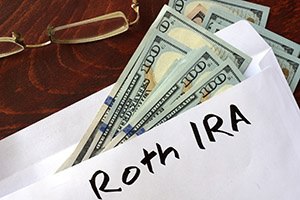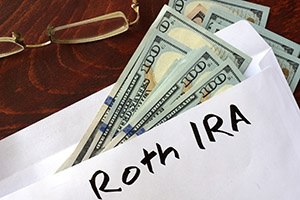Is a Roth conversion right for you?
September 18th, 2017 | 2 min. read

by Derek Van Solkema, Financial Adviser and Smartvestor Pro
 Football season is officially underway. We want our favorite teams to convert third downs into first downs, and first downs into touchdowns. If you’re a Detroit Lions fan like I am, then you know that tends to happen few and far between. (As always, I’m an optimist and this will be the year that everything changes!) But as we enter the 4th quarter of the year, we should be thinking about another kind of conversion – one that involves your retirement.
Football season is officially underway. We want our favorite teams to convert third downs into first downs, and first downs into touchdowns. If you’re a Detroit Lions fan like I am, then you know that tends to happen few and far between. (As always, I’m an optimist and this will be the year that everything changes!) But as we enter the 4th quarter of the year, we should be thinking about another kind of conversion – one that involves your retirement.
You may have heard about Roth IRA conversions, but never knew if one would make sense for you.
A Roth conversion refers to moving all or a portion of the funds from an existing IRA into a Roth IRA. Roth IRAs are generally a good idea for investors for five reasons: (1) tax-deferred growth, (2) flexibility, (3) no Required Minimum Distributions, (4) allowable contributions after age 70 ½ (with earned income), and (5) potential tax-free withdrawals for beneficiaries.
Prior to 2010, only account owners who had a modified adjusted gross income below $100,000 were eligible to convert. Since then, anyone can convert their eligible IRA to a Roth IRA regardless of income level.
You may be able to convert the following types of accounts into a Roth IRA:
- Traditional IRA
- Rollover IRA
- SEP IRA
- SIMPLE IRA
- SARSEP IRA
- Old 401k
- Old 403b
- Old governmental 457b
There are three important factors to consider when thinking about a Roth conversion:
1. Taxes
You will owe federal income taxes on the amount you convert in that year. So, if your income is lower this year than a typical year, a conversion may make sense for you. Also, if your tax rate will be the same or higher in retirement than it is today, then you might want to consider converting other accounts to a Roth IRA.
2. Time
If your time horizon is less than five years, it is not a good idea to convert because of the five-year holding requirement, which specifies that five years must pass before you can withdraw your earnings in the account tax-free. Each conversion starts a new five-year window. The clock begins on January 1 for the year in which the conversion was done. This means you can wait until December to see what your tax situation is for the year before doing a conversion.
The benefit of converting to a Roth typically increases the longer your money remains in it. That’s because Roth IRAs are not subject to RMD rules the IRS has in place for pre-tax retirement accounts. Therefore, your assets can grow tax-deferred for a longer period of time, which provides your savings additional time for compounding growth.
3. Cost
Because you are required to pay federal income taxes on the conversion, you need to consider the cost and whether you can afford it in that year. You also want to consider how much you can convert without moving into a higher tax bracket.
You should pay the taxes on a Roth conversion using cash or other savings held in non-retirement accounts. Using funds from a retirement account to pay the taxes due reduces the amount you would have available to potentially grow tax-free in your new Roth IRA. Additionally, if you are under age 59 ½, using the funds from a retirement account could result in an additional 10% tax penalty, which significantly reduces the likely benefit of a conversion.
Ultimately, the answer depends on your entire financial picture. Creating a financial plan or reviewing the one you have is a great place to start. For a more definitive answer, consult with a financial adviser who can take a close look at your situation to help you determine if a Roth conversion makes sense.
